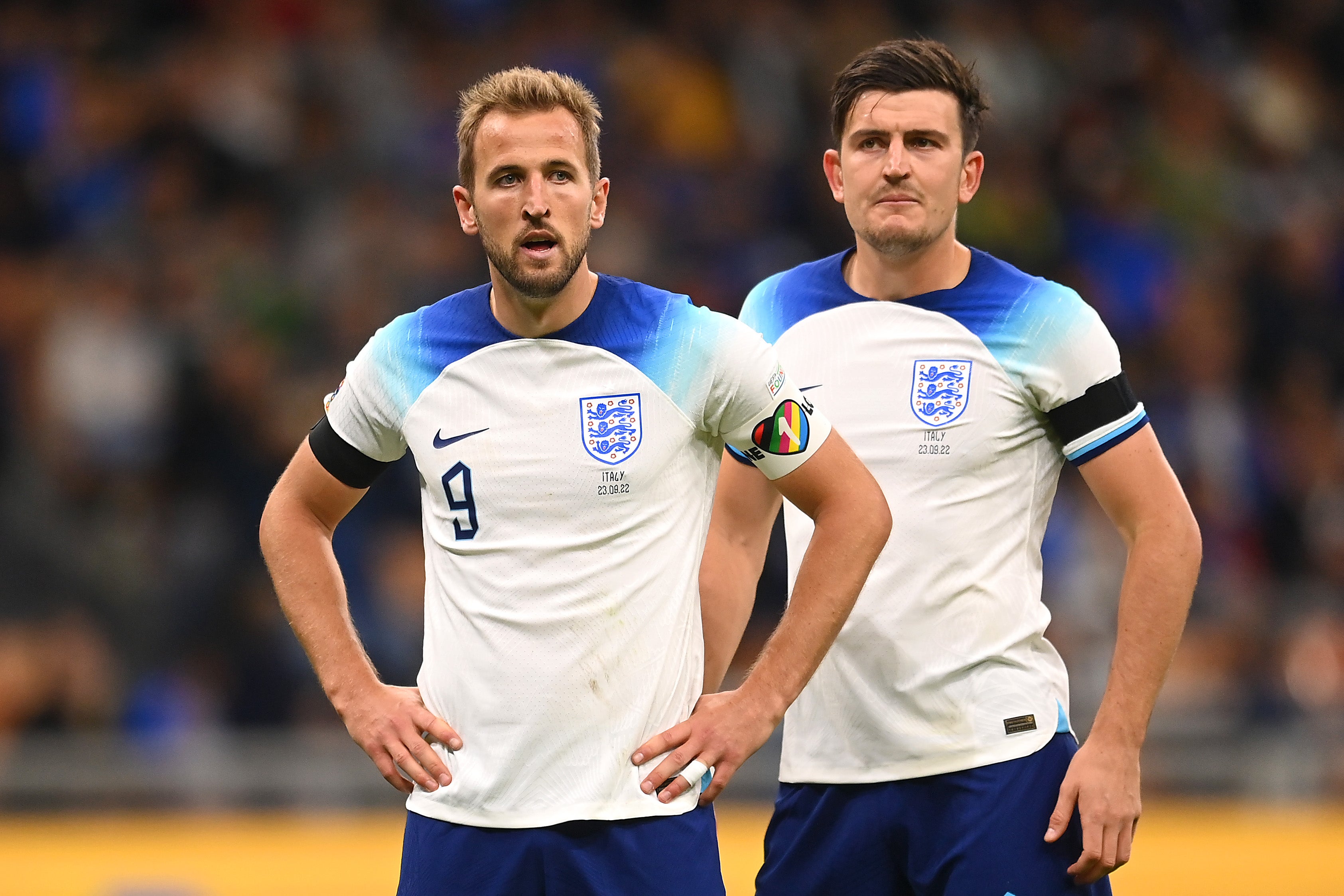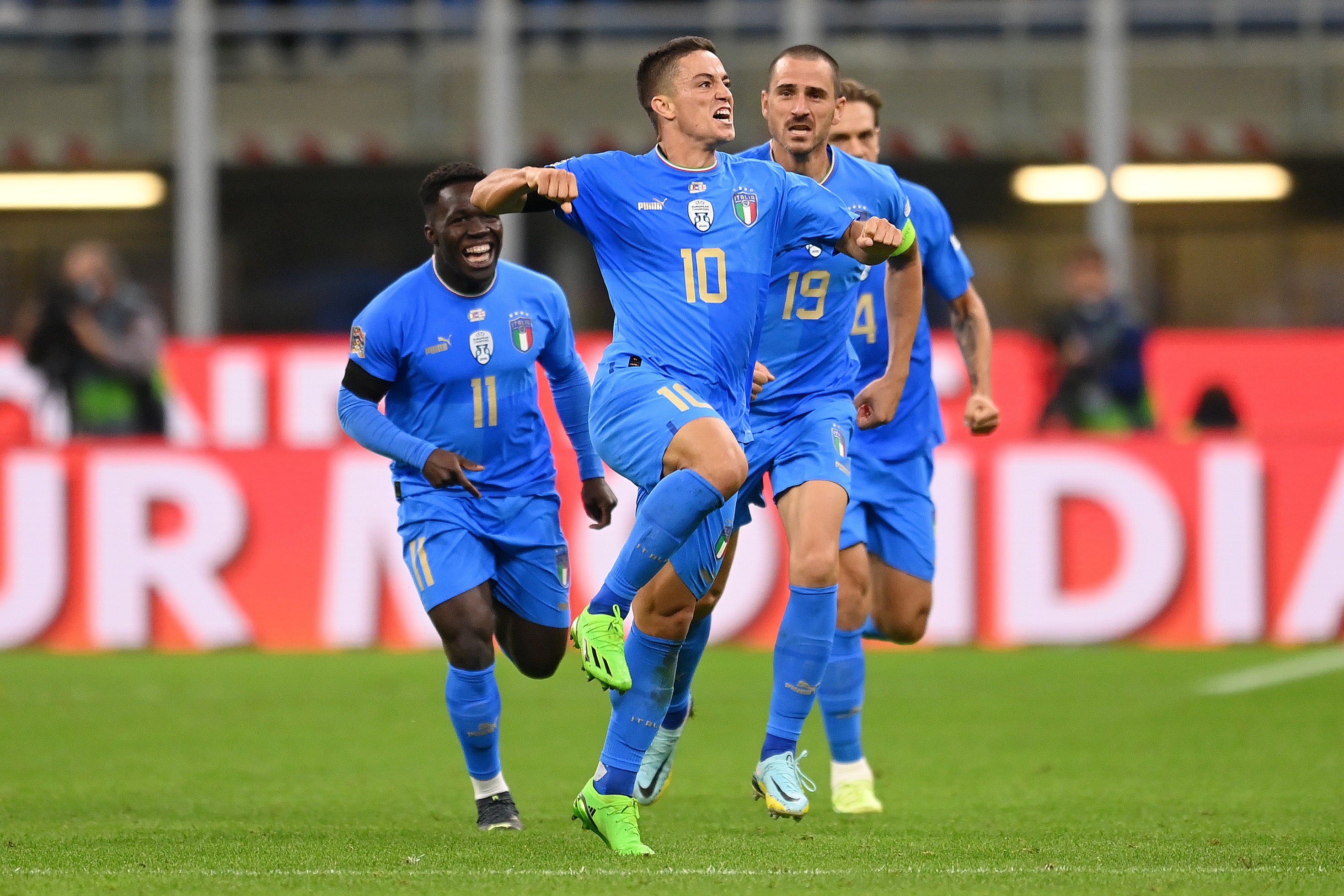England slip to dispiriting Italy defeat to suffer Nations League relegation
Italy 1-0 England: Giacomo Raspadori fired home in the second half to condemn the Three Lions to defeat in Milan

Your support helps us to tell the story
From reproductive rights to climate change to Big Tech, The Independent is on the ground when the story is developing. Whether it's investigating the financials of Elon Musk's pro-Trump PAC or producing our latest documentary, 'The A Word', which shines a light on the American women fighting for reproductive rights, we know how important it is to parse out the facts from the messaging.
At such a critical moment in US history, we need reporters on the ground. Your donation allows us to keep sending journalists to speak to both sides of the story.
The Independent is trusted by Americans across the entire political spectrum. And unlike many other quality news outlets, we choose not to lock Americans out of our reporting and analysis with paywalls. We believe quality journalism should be available to everyone, paid for by those who can afford it.
Your support makes all the difference.If this was Gareth Southgate refusing to compromise, what are the alibis? What are the excuses? This is no longer the summer, nor “just the Nations League”. It isn’t even a result of England football team’s ongoing failure to win in this country since 1961, since this wasn’t even a particularly strong Italy football team.
It no longer looks like a strong England.
And that, more than anything, is why this is now a big problem. There is more going on here than a bad run at the wrong time.
Southgate’s side look stale and disconnected, just as they come to a tournament that the Football Association had long targeted as the culmination of an era.
It may well prove a nadir of Southgate’s time. That will certainly be the discussion after this drab 1-0 defeat to Italy, which brings relegation in the Nations League.
England just had nothing like the sort of deftness or directness of Giacomo Raspadori’s match-winning strike.
They had very little of anything at all, other than a lot of concerns for Southgate to try and figure out with just one game left before the World Cup.
It was if anything a regression, as symbolised by the continual resorting to set-pieces and the use of a three-man backline that only radiates caution.

The team just didn’t seem to work. That was most obvious in general play.
The way Italy move meant it was a game full of transitions, but that didn’t exactly translate into an open match for most of it. Much of the problem was how England attempted to construct play. They just couldn’t. Anything even resembling an attack came from a set-piece. This was partly because, without real craft through the middle, every break was ultimately played out to the full-backs. The game gradually devolved into England forcing territory to create better-positioned set-pieces. Perhaps Southgate has actually been reading too much Eddie Jones.
It feels remarkable to say that, given this was a team with Jude Bellingham and Phil Foden in it, before you even get to Harry Kane, who has made dropping back such a part of his game. The problem, however, was where they were playing.
Bellingham found himself having to cover too much ground, which often left a huge gap between himself and Declan Rice. It afforded Jorginho the space to play some passes you wouldn’t usually associate with him. Foden, meanwhile, again felt like he was on a fixed tramline, rather than the fluid attacker we see interchanging positions at Manchester City.
So much of this comes from the formation. The three-man backline dictates that so many roles are filled by tactical necessity, which means there aren’t the shorts or outlets for England’s array of attacking talent.
They are all formation.
Italy, by contrast, were all system. They didn’t have anything like England’s talent but made a game of it through their approach. There was a greater fluidity and idea.
There was also purpose.
Even the very directness of Raspadori’s superb goal was something England had been missing.

Far more alarming, though, was how a side built on this defensive framework was so easily opened up.
That falls on Walker. He was too easily done by Leo Bonucci’s admittedly fine ball over the top, and then easily evaded.
It still took a special strike from Raspadori, mind. That shouldn’t be overlooked.
It did mean Southgate had to look at changing things, which finally brought a switch from the three, as well as some attacking intent.
There were finally some openings, as Gianluigi Donnarumma was forced into firm saves for the first time.
There were echoes of the game in Germany there, although it is not something England should want to make a habit of going into the World Cup: they only looked any way dangerous when they went behind.
Even then, it’s difficult not to get the feeling that Southgate will be far more concerned from the chances they coughed up in that final spell.
The precocious Wilfried Gnonto was certainly enjoying the space, while England just looked constricted.
Italy alone are the ultimate example of how the history of the World Cup has been illuminated by teams who have suddenly come together out of nowhere, but it’s alarming in itself that England now have to point to that.
They haven’t been nowhere. They are supposed to be in the final stages of a project coming together for so long.
Right now, despite so many defenders to pin it together, it only looks like it’s coming apart.



Join our commenting forum
Join thought-provoking conversations, follow other Independent readers and see their replies
Comments